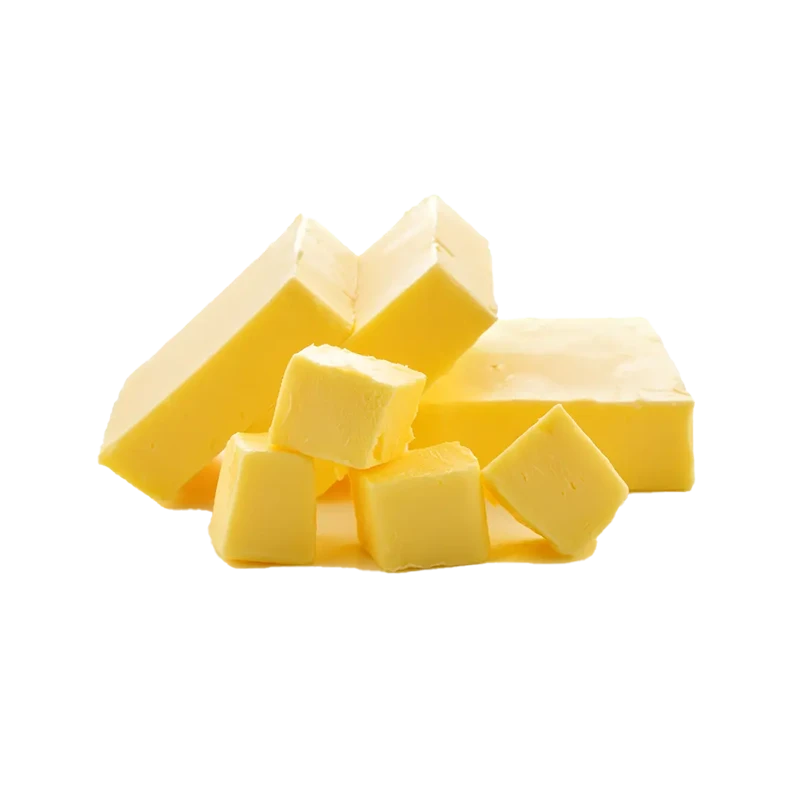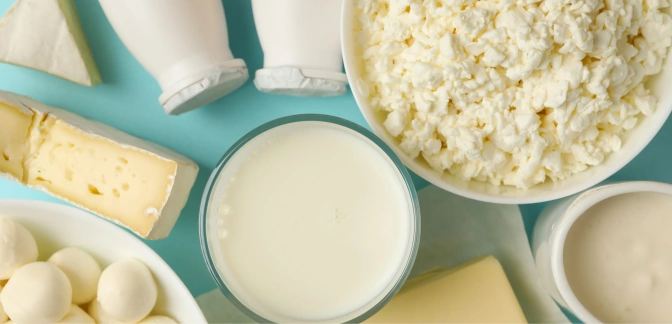Butter — Nutrients, Health Benefits, And Shopping Tips

Written by Listonic Team
Last update on September 4, 2024
Nutrients
Nutrition facts
Amount per 100 g
Calories
🔥 717 kcal
| Nutrition per: 100 g | Value | % Daily Value* |
|---|---|---|
| Carbs | 0 g | - |
| Fiber | 0 g | - |
| Sugars | 0 g | - |
| Glycemic Index | 0 | - |
| Protein | 1 g | 2% |
| Sodium | 11 mg | 0.48% |
| Total Fat | 81 g | 103.85% |
*The % of Daily Value (DV) tells you how much a nutrient in a serving of food contributes to a daily diet. 2,000 calories a day is used for general nutrition advice.
Key takeaways
Health benefits
- Rich in healthy fats, which provide energy and support cell function.
- Contains fat-soluble vitamins such as Vitamin A, D, E, and K, which are important for various bodily functions, including vision, immune function, and bone health.
- Enhances flavor in foods, making them more enjoyable and palatable.
- Contains conjugated linoleic acid (CLA) which has been linked to potential health benefits, including anti-cancer properties and improved body composition.
Health risks
- High saturated fat content which can contribute to increased cholesterol levels and raise the risk of heart disease when consumed in excess.
- High calorie content which can contribute to weight gain if not consumed in moderation, especially when used in large quantities.
- Potential for overconsumption due to its rich flavor, leading to excessive caloric intake and associated health risks.
- Allergic reactions particularly in individuals with dairy allergies, causing symptoms like itching, swelling, or difficulty breathing.
How to choose butter
When selecting butter, consider its color and texture. It should be uniformly pale yellow or cream, suggesting high-quality cream was used. The butter should be firm at room temperature yet not overly hard, which signifies proper storage.
Reject butter that is too soft or oily, likely due to mishandling or exposure to heat. Quality butter offers a clean, fresh taste with just a subtle creamy undertone, free from any off-flavors.

How to store butter
Butter should be stored in the refrigerator to maintain its freshness and prevent spoilage. If you need to keep it for an extended period, freezing is a good option. Properly stored butter can last for several months.
Leaving butter at room temperature for too long can cause it to spoil. Do not store butter near strong-smelling foods in the refrigerator, as it can absorb odors. Keeping it in its original packaging or an airtight container helps preserve its flavor.
✅ Extra Tip
How long does it last?
Butter can last for 1-3 months in the refrigerator. For longer storage, butter can be frozen for up to 6-9 months. Ensure it is tightly wrapped to prevent it from absorbing other flavors in the refrigerator or freezer.
What to do with leftovers?
Leftover butter can be used in a wide range of recipes. Use it to make a compound butter by mixing it with herbs, garlic, or citrus zest, perfect for spreading on bread or melting over meats and vegetables. Butter is also essential in baking, where it can be used in cakes, cookies, and pastries.
Melt butter and drizzle it over popcorn for a delicious snack, or use it as the base for a sauce like beurre blanc or hollandaise. If you have a lot of butter, consider using it to make homemade caramel or butterscotch sauce for desserts. Butter can also be used to sauté vegetables or added to mashed potatoes for a rich, creamy texture. For a quick flavor boost, melt butter and mix it with spices to drizzle over grilled meats or seafood.
👨⚕️️ Medical disclaimer
Discover products from other categories
Listonic Team
Fact-checked
Our editorial team checked this article to make sure it was accurate at the time of publishing it.
Get the top-rated shopping list app

butter
1 piece







